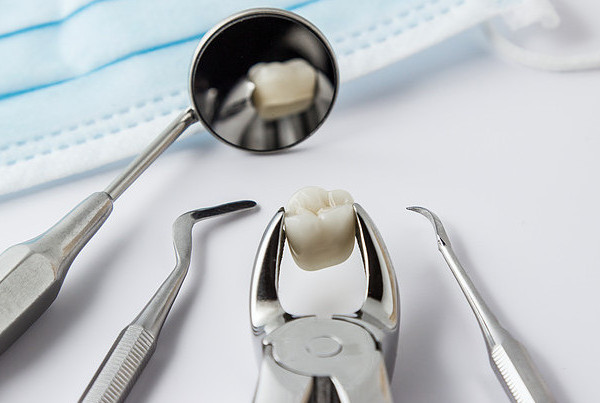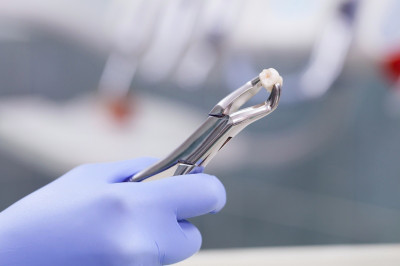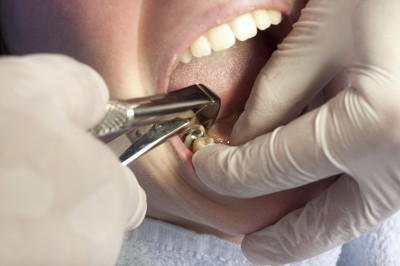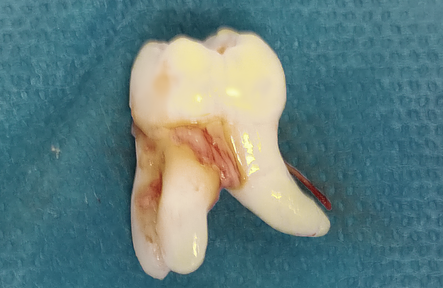After tooth extraction, it’s important for a blood clot to form to stop the bleeding and begin the healing process. That’s why we ask you to bite on a gauze pad for 10 minutes after the appointment. If the bleeding or oozing still persists, place another gauze pad and bite firmly for another 30 minutes. You may have to do this several times.
After the blood clot forms, it is important not to disturb or dislodge the clot as it aids healing. Do not rinse vigorously, suck on straws, smoke, drink alcohol or brush teeth next to the extraction site for 72 hours. These activities will dislodge or dissolve the clot and retard the healing process.
Antibiotics
Be sure to take the prescribed antibiotics as directed by your oral surgeron to help prevent infection. Please be aware that oral contraceptives are influenced by antibiotics and the contraceptive pill may not be very effective. It is advisable to use extra barrier methods as a precaution.
Activity
Keep physical activities to a minimum immediately following surgery. If you are considering exercise, throbbing or bleeding may occur. If this occurs, you should discontinue exercising.
Bleeding
Some bleeding or a blood tinge in the saliva is normal for 24 hours after surgery. Excessive bleeding (your mouth fills up with blood) can be controlled by biting on a gauze pad placed directly on the bleeding wound for 30 minutes. If bleeding continues please call for further instructions.
Diet
Drink plenty of fluids. Avoid hot liquids or hot food for the first 48 hours after surgery. Soft food and liquids should be eaten on the day of surgery. Return to a normal diet as soon as possible unless otherwise directed.
Oral Hygiene
Good oral hygiene is essential to good healing. After you have seen your dentist or prosthodontist for a denture adjustment, take out the denture and rinse three times a day. Otherwise if no denture was placed during surgery, 24 hours after surgery start mouth rinsing with warm salt water 3 times a day, after breakfast, lunch and dinner. Warm salt water rinses should be – 1 teaspoon of salt in a cup of warm water. Brush your teeth as normal, however do avoid the site of surgery for the first week after surgery. After 1 week brush as normal, just be gentle at the surgical sites. Continue this procedure until your follow up appointment with your surgeon.
It is important to resume your normal dental routine after 24 hours. This should include brushing and flossing your teeth at least once a day. This will speed healing and help keep your mouth fresh and clean.
Pain
You should begin taking pain medication as soon as you feel the local anaesthetic wearing off. For moderate pain, adults can take 2 tablets of panadol every 6 hours maximum of 8 tablets in a day. Ibuprofen (neurofen, advil) comes in 200mg – 400mg over the counter, and can be taken every 8 hours with food. Not to be taken if you have a gastric or kidney problems. For severe pain, the prescribed medication should be taken as directed.
If the pain does not begin to subside in two days, or increases after two days, please call the office.
Recovery
It is important to take time to recover and this can vary from 5 – 10 days depending on the individual and the nature of the surgery. Please request a medical certificate if required.
Swelling And Brusing
Swelling and brusing is a normal occurrence after surgery. To minimize swelling, apply an ice pack in the area of surgery. Apply the ice pack for 15 minute intervals, for the first 48 hours after surgery.
Finally
After a few days you will feel fine and can resume your normal activities. If you have heavy bleeding, severe pain, continued swelling for 2-3 days, or a reaction to the medication, call our office immediately on 07 3832 3232.




